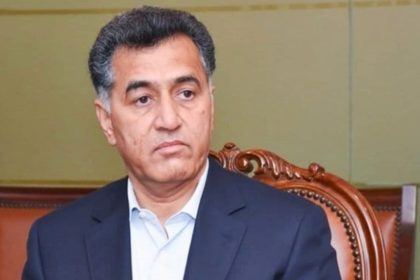President Asif Ali Zardari has approved the appointment of Justice Yahya Afridi as the chief justice of Pakistan (CJP), the state-run Associated Press of Pakistan reported. The nod came following the recommendation of a newly-formed Special Parliamentary Committee (SPC) that was constituted following the passage of the 26th Constitutional Amendment a day earlier.
Justice Afridi is now set to take the oath on October 26 as the 30th chief justice of Pakistan, and will continue to serve for three years. He will replace Justice Qazi Faez Isa, who retires on October 25. Never before in the country’s history had a judge from the erstwhile Federally Administered Tribal Areas (FATA) assumed the top judicial post.
He is among the three top judges of the Supreme Court when it comes to seniority. He was also the youngest chief justice of the Peshawar High Court at the time of his appointment.
Selection process
Justice Afridi will now be the first chief justice to have been appointed under the recently modified process of selection. Earlier, the position was automatically assigned to the most senior judge after the retirement of the top judge. However, things have now changed, as the new system empowers a parliamentary committee – comprising eight members of the National Assembly and four senators – to pick the chief justice from among the three most senior judges of the apex court.
Since Justice Isa is scheduled to retire in two days, the committee met late last night to finalize its recommendation, and voted in favor of Afridi, with eight members supporting his nomination. The only dissenting vote came from Jamiat Ulema-e-Islam-Fazl (JUI-F) Senator Kamran Murtaza, who backed Justice Mansoor Ali Shah, who is the senior puisne judge of the Supreme Court.
Representatives of the Pakistan Tehreek-e-Insaf and its ally, the Sunni Ittehad Council, did not attend the meeting in protest. However, their absence did not stop the committee from moving forward. The decision was then relayed to Prime Minister Shehbaz Sharif for final approval before being confirmed by the president.
Decision hailed
Justice Afridi’s nomination was widely praised by legal fraternity mainly because of his integrity and expertise in constitutional law.
The Sindh Bar Council (SBC) called the appointment a “major advantage for the judiciary and the nation”. Rustam Bhutto, the bar council’s acting secretary, lauded Afridi for his “remarkable wisdom” and “strength of character” that made him a standout figure in the legal community.
Challenges
Justice Afridi’s appointment comes amid the judiciary facing numerous challenges, the foremost being the slow pace in delivering justice and a huge backlog of cases. The legal community hopes the new leadership will bring about much-needed reforms in the system in order to improve the efficiency of the not just the apex court but also the lower courts. Looking at his track record, one would find that he is well-equipped to handle these challenges.
He has had a distinguished career in law, and is reputed as a fair jurist. Even his elevation to the Supreme Court in 2018 was widely welcomed. Legal experts hope that his appointment as the top judge of the country will bring greater transparency, efficiency, and fairness to legal system.
















